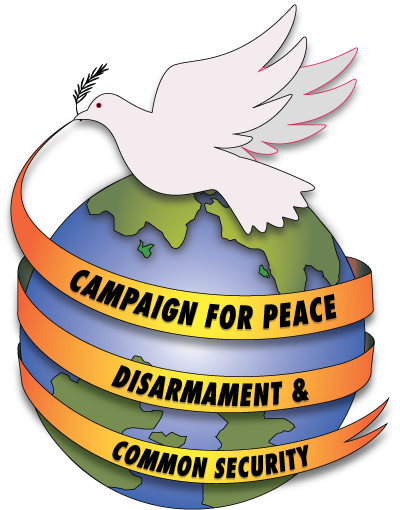 From Short National Reports – IPB, March 23, 2019, Paris
From Short National Reports – IPB, March 23, 2019, Paris
As we began the board meeting, we did a quick round of updating reports about politics in each of our countries. You might find some of this interesting, and in many ways consistent with dynamics in U.S., or in some cases more hopeful.
SPAIN – Jordi Calvo: Rise of Trumpist party, VOX, in Spain. They have a general election in April, and VOX is growing and will be represented in the new parliament. It is anti-feminist, in alliance with the Church, and nationalist – especially versus Catalonia. This is a continuation of Francoist forces. There are 5 parties plus the Basques and the Catalans. The outcome of the election will likely be a conservative government of Liberals, the Populares and VOX. In May there will be local and European Parliamentary elections. VOX is influencing the other right-wing parties which are moving further to the right in response to VOS.
Millions came out into the streets I support of feminists, with 40 demonstrations around the country. The rebellion and extinction movement (called Fridays for Future in Italy) is a growing and encouraging force.
JAPAN – Yayoi Tsuchida: Abe politics are dominant. Resistance focuses on his government’s misuse of tax money, increased military spending and Abe’s effort to revise Article 9 of the constitution (the peace article.) Abe’s popularity is decreasing, but he is aided by the Komei party (Soka Gakkai.) In July there will be upper house elections. There is increasing cooperation and join work among the several opposition parties and movements.
The Hibakusha signature campaign moves forward. They hope to present 10 million signatures at the NPT PrepCom. 1,200 mayors and governors have signed. There is a campaign to win local governments’ support for the Ban Treaty. The Okinawa People’s referendum resulted in 72$ voting against the construction of the new base in Henoko. Abe seeks to increase the consumption (sales) tax from 8% to 10%. Opposition is building built in part on the basis of opposing military spending and Japan’s contribution to the costs of the US maintaining military bases across Japan. The government has abandoned the people of Fukushima. This is being linked by the movement to military spending. In May the Japan-Korea Forum for peace will be held in Seoul. Growing collaboration between the Japanese and Korean movements is reflected in the plan for Koreans to join the All Action Coalition for Article 9 rally that will be held 10 days later. Another area of cooperation is the Japanese movement’s support for the decision by the Korean court that Japanese companies should finally pay Koreans who were forced to labor for them during the 15-year war.
ICAN – Arielle Denis: Cold War II has started. She takes hope from the many forms of mobilization, including the climate change movement which lacks strategy. There will be a major peace march of the excluded, beginning in Bulgaria, with a number of courses, concluding in Geneva. GCOMS/GDAMS has helped to open debate about military spending, which is now discussed more. The Dutch and Swiss parliaments are pressing for the Ban treaty, as has the E.U. parliament in response to US withdrawal from the INF Treaty.
BELGIUM – Etienne de Jonghe: The movement to address climate change, led by youth, goes deep. The center-right Flemish party will likely win the spring election. They actually seek the end of Belgium. The Green Party is on the rise, especially with youth. Overall, there is a move to the right in Belgium, with extremists getting more media attention. This is influenced by the Dutch, especially among the Flemish, with the right-wing having recently won a major election in The Netherlands.
ITALY – Lisa Clark: Italy is in a dangerous situation with a right-wing government supported by the Five-Star populist movement, which had previously posed as a left-wing party. Fascist nostalgia is now mainstream. The Republic’s president, a man of great integrity, is opposing new fascism. The Five Star party’s defense minister has called for a review of the Joint Strike Fighter (F-35) negotiations, with an expectation that he wants to buy them. The disarmament network is growing in response. Court cases have been launched against the government selling weapons for the Yemen war. The interior ministry is deeply racist, and there is growing generalized racism against immigrants. Major demonstrations have been held to protest anti-immigrant racism. An estimated million students, many joined by their teachers, joined in the climate change walk outs and demonstrations.
GERMANY – Reiner Braun: Germany is a comparative island of stability, as the German elite seeks a new place in the world, more independent from the U.S. and serving as the E.U. hegemon. There is increased confrontation with Russia, but also deep economic integration. Germany is now in a deep fight with Trump, especially over 5G technology and Huawei. German corporations want Huawei, and the U.S. is furious. Also plans for the Northstream 2 pipeline from Russia continues to move forward. All of this makes politics quite complex. The German elite is seeking to modernize the structure for capitalism, which will likely lead to a Conservative-Green coalition. There is intense debate about Germany’s role in Europe, E>U. militarization, and the alliance with the Saudis and the Yemen war.
Civil society is responding with many actions, including Fridays for Future (climate), with a half million at a recent demonstration. It’s a source of hope. The movement against military spend, including unions and church, is growing.
FRANCE – Roland Nivet: France has growing military expenditures. It is doubling its nuclear weapons budget to seven billion euros. The government plans to replace all of its nuclear submarines and more. There is military intervention in Africa. Domestically, there is no dialog about military spending. The military is now in the streets against the social movement (Yellow Vests), and they can use their weapons. There is also a large anti-immigrant wave. There is increased commitment o building an E.U. military under the slogan of “security I Europe. It is liked to Russia and North Africa.
Mouvement pour la Paix’s work is focused on building its base, including work with trad unions. 15 organizations singed a call for peace and disarmament, including support for ICAN.
FINLAND – Laura Lodenius: They have national and EU elections coming. They are using the election to work to influence politicians to support the nuclear ban treaty. They are also working to oppose military robotic weapons. The government plans to send 10 billion Europe for new fighters from the U.S., but there is growing pressure to buy Swedish fighters, as well as opposition to weapons sales to the Saudis for the Yemen War. Opposition to Finland joining NATO continues to prevail, although there is increased NATO-Finnish military cooperation. This is supported in response to Russia. Young people are engaging in Friday strikes for the climate.
(THE NOT SO UNITED) KINGDOM – Dave Webb: Brexit has Britain in a bigger mess than the U.S. is in. Brexit is the focus of everything, and the country is polarized. It all grows from a debate within the Tory party. There are anti-immigrant and xenophobic demonstrations and violence, and austerity has done a lot of damage. The outcome of Brexit remans unclear. There will be violence if there is not a hard Brexit. The military and foreign policy implications of Brexit have not been part of the discussion. The government will be looking for trade agreements, especially with the U.S/, but tis will come with some military elements, possibly the purchase of more F-35.
There is more right-wing nostalgia for Empire and the military. With Brexit, Scotland will seek a new referendum on leaving the U.K. It doesn’t want British nuclear weapons, but it does want to stay in NATO. The Labor Party is in turmoil, including about Brexit. There is growing youth support for the Extinction Rebellion, and some local councils (Manchester especially) supporting the Ban Treaty. There has been a blockade of a nuclear weapons plan, plans for a demonstration to mark NATO’s 70th anniversary. And CND will be hosting a PSPD (People’s Solidarity for Participatory Democracy – Korea) speaking tour.)

